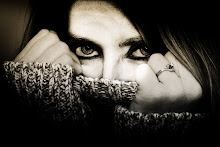I grew up in a home with a smoker. Every year I had terrible bouts with flu, pneumonia, and head colds. When I left home for college, I suddenly had fewer colds, and since I've been completely in a smoke-free environment since being married, I have had even fewer. I don't think that's a coincidence. Here's an article I found from www.medicalnews.com on the newest initiatives to keep our kids from being exposed to secondhand smoke and the dangers they face when exposed.
I've also added a new poll to the blog about smoking bans in public places. Please vote if you visit here and feel free to comment about your vote on this post. I'd love to know everyone's opinions. If it were a perfect world, I'd totally go with choice #1. I think choice #2 is the most logical--plus, it keeps the smokers contained in places where we non-smokers don't take our kids anyway, e.g. poolrooms and bars and they can puff away to their hearts' content (and lungs' destruction).
American Lung Association Commends Nationwide Initiative To Protect Children
From Secondhand Smoke25 Sep 2007
The recent announcement of a new partnership designed to protect children enrolled in Head Start from the dangers of secondhand smoke is significant. The American Lung Association commends Acting Surgeon General Kenneth Moritsugu and the American Academy of Pediatrics and their partners for taking this step to protect one of our most vulnerable populations.
No child should ever be exposed to secondhand smoke. Parents, grandparents and caregivers all must take steps to protect children from exposure. The American Lung Association also encourages all health care providers and educators to talk with parents and caregivers about protecting their children from this deadly smoke.
Last year's Surgeon General's Report on The Health Consequences of Involuntary Exposure to Tobacco Smoke made it clear that there is no safe level of exposure to secondhand smoke, particularly when it comes to children. Today's announcement, "Children and Secondhand Smoke Exposure," emphasizes the harmful consequences to children. Almost 60 percent of U.S. children aged three years to eleven years-or almost 22 million children-are exposed to secondhand smoke. Infants exposed are at an increased risk for sudden infant death syndrome (SIDS) and children are especially vulnerable to other people's smoke, suffering acute respiratory infections such as bronchitis and pneumonia, more severe asthma and ear infections as a result. Secondhand smoke causes an estimated 150,000 to 300,000 lower respiratory tract infections in infants and children less than 18 months of age, and each year, hundreds of thousands of children with asthma have their symptoms worsened by being exposed to other people's smoke.
Currently, 21 states, the District of Columbia and Puerto Rico have already passed strong smokefree air laws that protect everyone from the dangers of secondhand smoke in workplaces including bars and restaurants. In January of 2006, the American Lung Association launched our Smokefree Air 2010 Challenge, urging all states to go smokefree by 2010.
For more information about how to stop smoking, please call 1-800 LUNG USA or log onto the American Lung Association's Freedom From Smoking® Online program at http://www.lungusa.org.
About the American Lung Association
Beginning our second century, the American Lung Association is the leading organization working to prevent lung disease and promote lung health. Lung disease death rates continue to increase while other leading causes of death have declined. The American Lung Association funds vital research on the causes of and treatments for lung disease. With the generous support of the public, the American Lung Association is "Improving life, one breath at a time."



2 comments:
My dad quit smoking about 20 years ago. He is now retired and tends bar at a local lodge just for fun and tips. He developed throat cancer 2 years ago which doctors think in part was caused by the secondhand smoke. During his recovery, he was not allowed to be near any secondhand smoke. I'm glad to see so many public places are now smoke free.
As an ex-smoker I can tell you its a nasty addiction--almost predatory in its attack on the nervous system. It was hard to quit but so amazingly worth it. I didn't want to quit but I knew I had to. Sometimes you just have to do the hard thing. The benefits are enormous. Especially at $4-$5 a pack--most of which are taxes BTW. So hey, if you're mad at the government for something--protest by not smoking and watch the revenue plummet!
Congratulations on quitting! And your dad's too! You've both done your families a big favor.
I keep hearing that increasing cigarette taxes will help people quit smoking. I don't think so at all. I've seen my mother do without other things just to get her smokes. I think many smokers would do without food or be late on their bills just so they could smoke.
Post a Comment